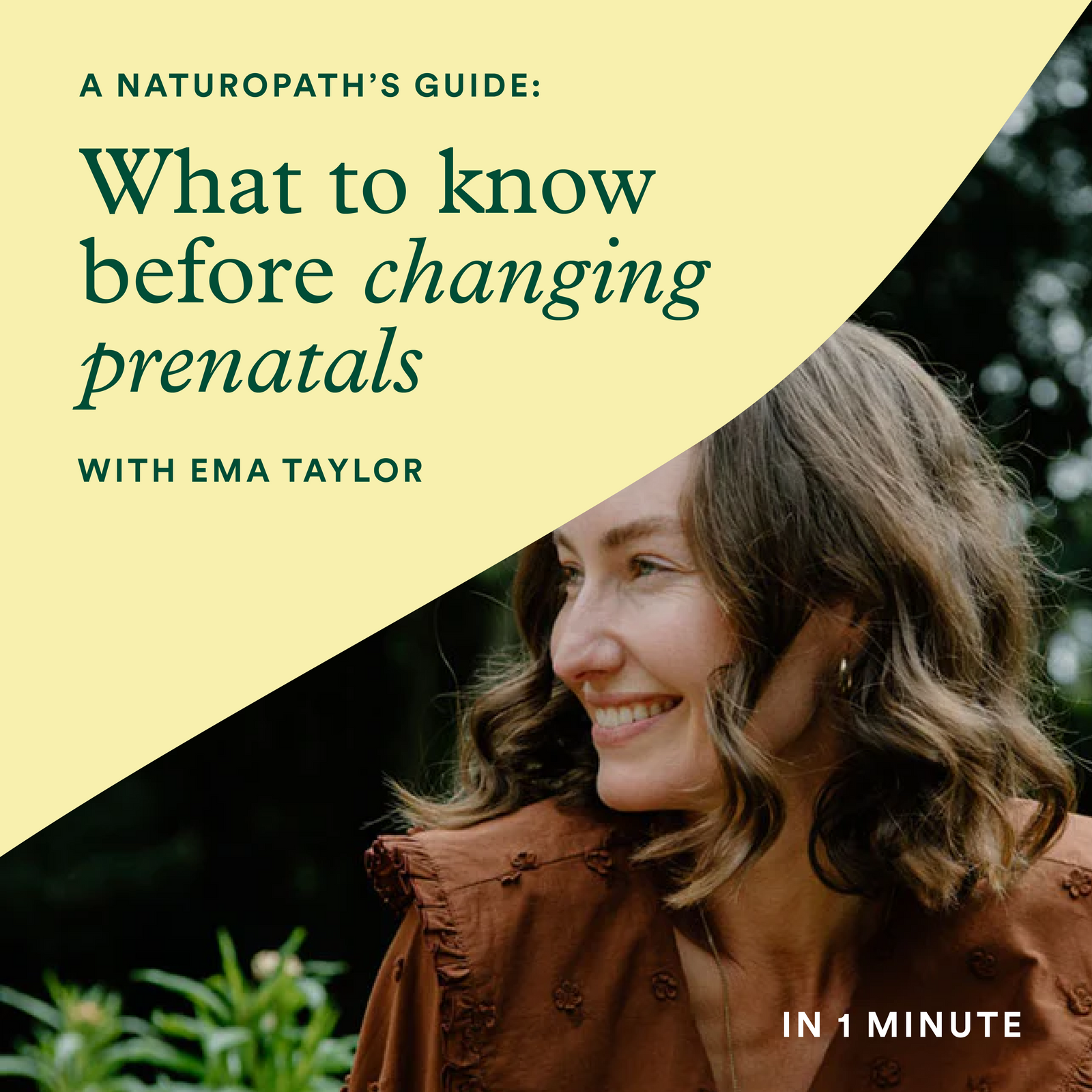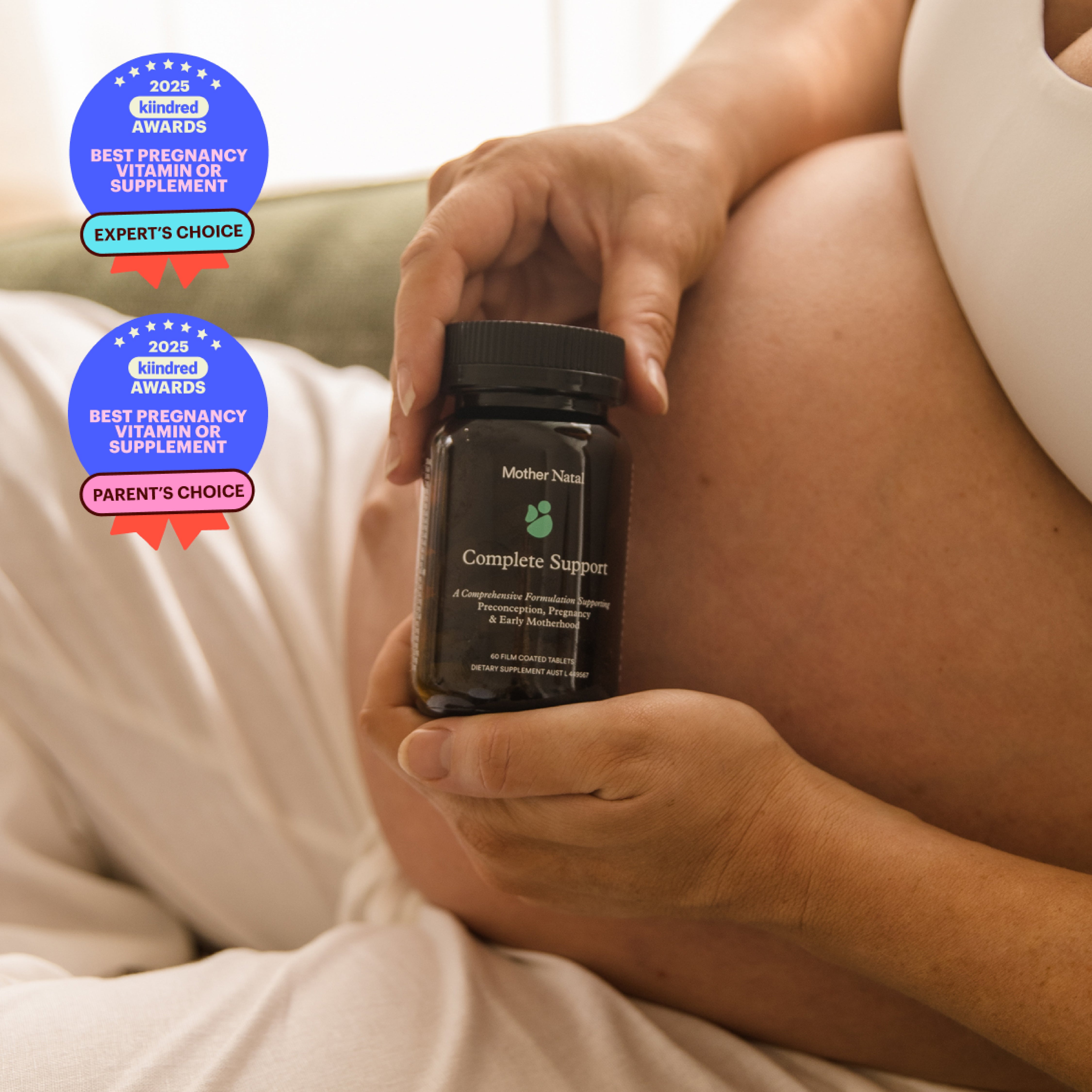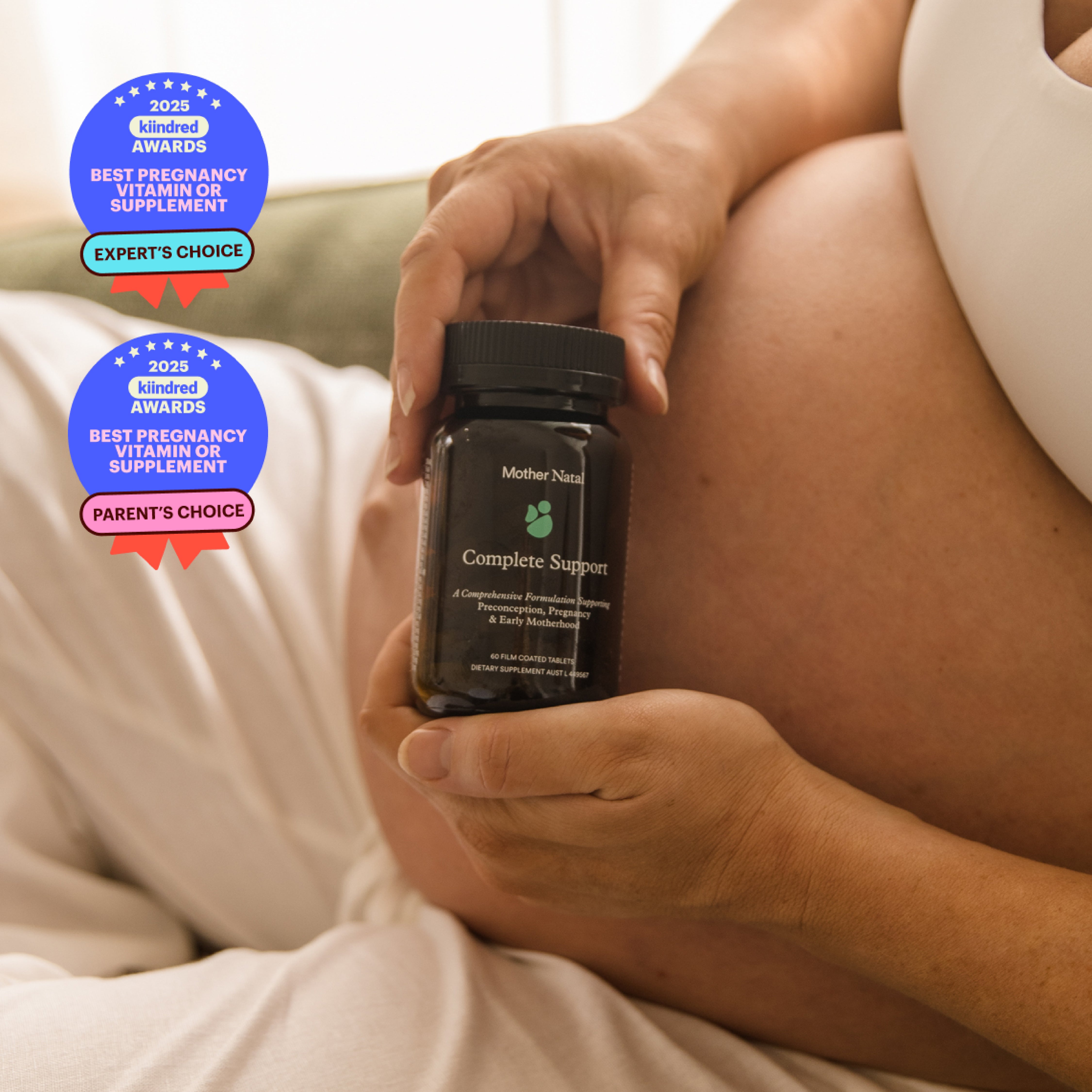A NOTE FROM OUR NATUROPATH
Can you change prenatals during pregnancy?
The short answer: yes! If your prenatal doesn’t feel right or you’re unsure whether to stay on the same one, you’re not alone. Ema explains when it’s okay to make a change, what to look for in a formula and how to do it safely.
Changing Prenatals Made Simple
It’s common to feel unsure about changing prenatals, but in most cases it’s a simple process that your body adjusts to easily. Here’s what to consider before making the switch:
Look for a prenatal that meets Australian health guidelines, including both folic acid and methylfolate, plus key nutrients like iodine, choline, vitamin D and B12. These ensure consistent support through each trimester.
The form of each nutrient matters. Activated B vitamins and gentle, chelated minerals are easier for the body to absorb and less likely to cause nausea or constipation.
If your new prenatal already contains a full spectrum of nutrients, there’s usually no need to take additional single vitamins or minerals on top. More isn’t always better, too much of certain nutrients can actually be counterproductive.
It can take a little while for your body to settle into a new formula. Slight changes in digestion or urine colour are normal and generally a sign that your body is adapting.
If you have pre-existing health conditions or take other supplements or medicines, always confirm with your healthcare provider before switching to make sure everything works safely together.



